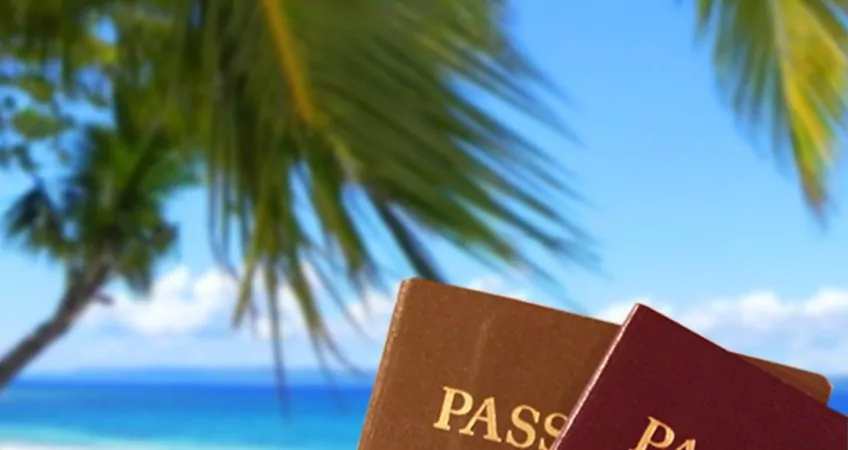
Establishing Residency In The Dominican Republic
Important Changes To The Dominican Republic's Second Passport Program
Last week I took my own advice and obtained a backup residency.
I’ve chosen to take this step in the Dominican Republic, where I’d been assured that establishing residency can be a straightforward process. I decided to test the theory and find out for myself.
I can tell you now that I wasn’t oversold. This has been relatively painless and also a bargain compared with the costs of other residency programs.
The first thing to understand is that, in the Dominican Republic, you can apply for regular residency or what has been coined “fast-track” residency.
Capitalize Residency
Regular residency is the process undertaken by anyone who doesn’t qualify for a fast-track option. In other words, while regular residency is possible for most everyone, fast-track residency requires you to meet specific requirements.
Fast-track residency options target both retirees (pensionados) and investors.
Retirees have to show US$1,500 or more per month in retirement income. That amount is a bit more than the average U.S. Social Security check, but many individuals and most couples would qualify.
Investors must invest US$200,000 in the country. That investment can take the form of a bank CD deposit, an operating company, or property purchase (through a company).
If you qualify under one of the fast-track options, you’re granted permanent residency straightaway. Under the regular residency application, you have to renew your status every year for the first four years. With fast-track residency, you avoid the annual renewal. You renew your status every four years.
And you don’t have to spend any specific amount of time in the country on an ongoing or annual basis. You need only return for the every-four-years renewal.
Furthermore, your residency in the Dominican Republic can lead to citizenship within three years. If this is your objective—a second passport rather than residency—you could never actually be required to renew your residency… especially as, under the fast-track residency option, you can start your naturalization process six months after receiving your permanent residency card.
Second Passport
Right now, a Dominican Republic passport isn’t a great travel document. However, I have it from a reliable government-connected source that this is about to change. The country has applied for its passport to allow for visa-free travel to Europe, and, again, according to my source, it seems this is going to be granted.
This is not yet public knowledge and not yet a done deal, but, if this comes to pass, it’ll be a very big deal. It would mean the addition of at least 26 European countries to the visa-free travel list for Dominican Republic passport holders… making a passport from the DR much more valuable for those seeking a second citizenship.
If the approval for visa-free travel in Europe comes through, expect an increase in the volume of applications for DR residency, perhaps a dramatic increase. Investors looking for back-up plans will flock to the country happy to put US$200,000 into an investment promising a real return… especially when the alternative is a “donation” to the country as required by the more popular Citizenship by Investment Programs (CIP) of other Caribbean nations, including St. Kitts and St. Lucia.
The timeline for a DR passport is longer than for the CIP programs, but the overall cost is much less.
And, while the DR time line for naturalization isn’t instant as it is for the CIP programs, it is the shortest option out there of any residency-for-citizenship program.
The next quickest option is available in Paraguay, where you need three years of residency before you’re eligible to apply for naturalization. Most countries require five years of residency or more.
I’m in the office in Panama City today but fly back to the DR tomorrow for our Live and Invest in the Dominican Republic Conference starting Wednesday morning.
According to my local attorney, who will be participating in the event, at least a third of the attendees have already contacted her to begin the residency application process. Some will be picking up their residency cards while in the country for the conference this week.
In other words, interest in this country’s residency and citizenship programs is already expanding. If (I believe it’s a question of when) the OK for visa-free travel in Europe comes through, the interest could explode.
I don’t use words like that lightly or often. I make the point now because I see this as a window of opportunity to act before the deluge that I believe is just around the corner.
Because, when the deluge hits, this country would be foolish not to raise the costs of its residency and citizenship programs. And it likely will have no choice but to make the process more difficult and the timeline longer, if only for practical reasons.
I’ve seen this happen before… in Panama, for example, where booming interest in pensionado residency led to increased costs and processing delays.
If you’re looking for a residency backup plan and/or a second citizenship, now is the time to take action in the DR.
Lief Simon



